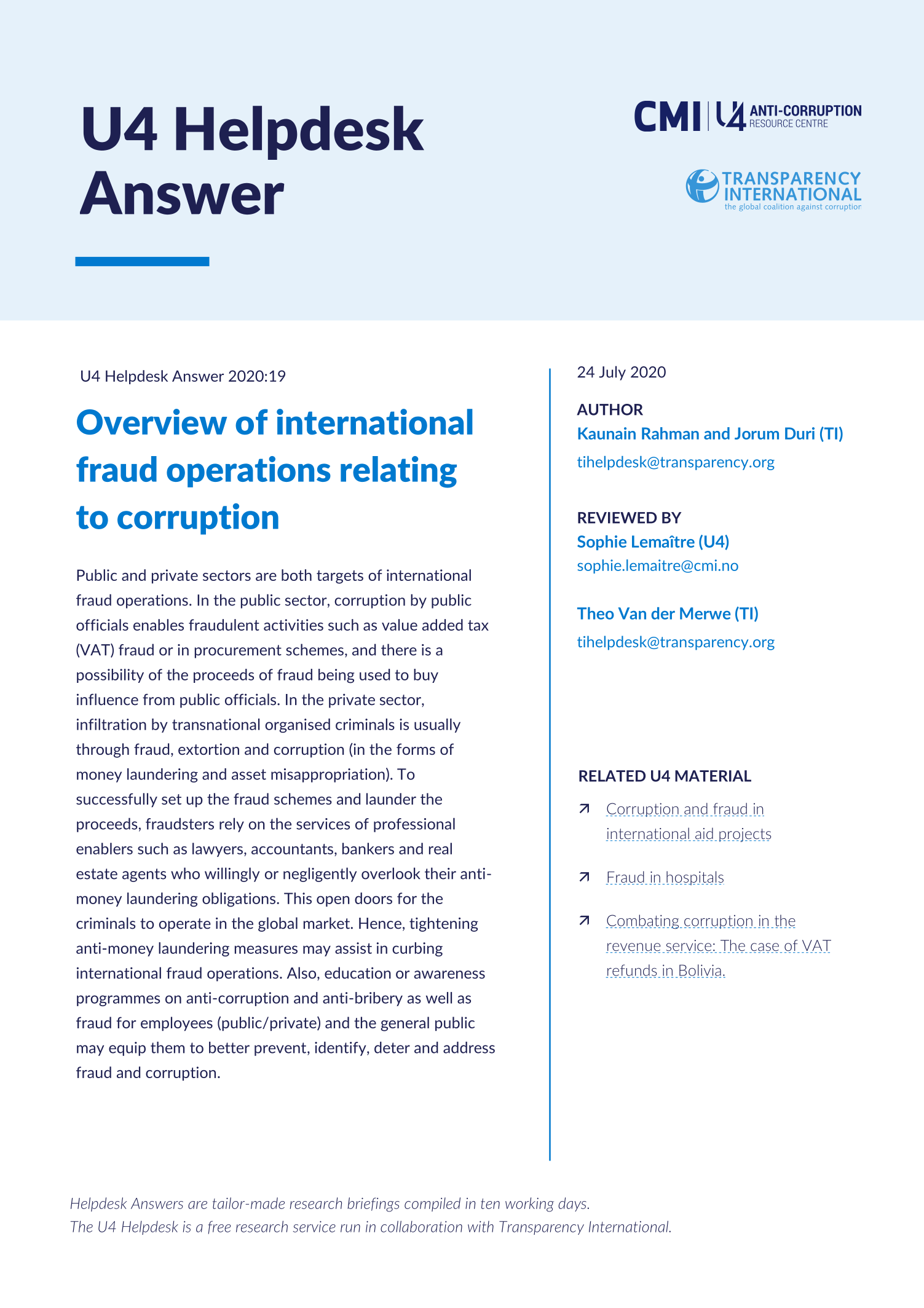Main points
- Various instances of internal and external fraud that involve abuse of power link the phenomenon with corruption.
- In the public sector, fraudsters use corruption to minimise law enforcement or operational risks by public officials in schemes such as VAT fraud or procurement fraud.
- Corruption and fraud in the private sector often overlap when it comes to white-collar crimes.
- Professional enablers such as bankers, real estate agents, notaries, lawyers, accountants and corporate service providers may willingly or negligently assist in setting up fraudulent schemes or laundering the proceeds of fraud.
- Money laundering and fraud are connected in the sense that criminals who commit fraud eventually need to monetise that information and launder the proceeds so that funds appear legitimate.



